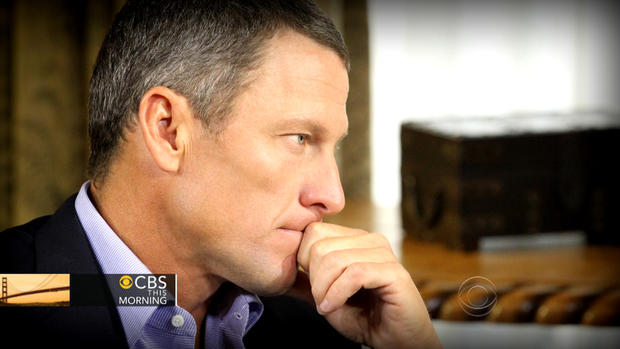Lance Armstrong urges judge to dismiss gov't lawsuit
WASHINGTON Cyclist Lance Armstrong urged a federal judge Tuesday to dismiss the Justice Department's False Claims Act lawsuit against him, arguing that that the Postal Service got its money's worth out of its sponsorship deal and that the claims are barred by the statute of limitations.
In the filing in U.S. District Court in Washington, lawyers for Armstrong said the Postal Service, which sponsored Armstrong's cycling team, got exactly what it bargained for, including tens of millions of dollars' worth of publicity, exposure to more than 30 million spectators at international cycling events, and hundreds of hours of television coverage
- Armstrong: I'm still record Tour de France winner; race "impossible to win without doping"
- Justice Dept. lays out case against Lance Armstrong
The Justice Department this year joined former Armstrong teammate Floyd Landis' whistle-blower lawsuit against the disgraced cyclist. Under the False Claims Act, whistle-blowers can share with the government in any recovery of money based upon their disclosures.
The government claims that Armstrong violated his contract with the Postal Service and was "unjustly enriched" while cheating to win the Tour de France. That came following Armstrong's admission in January to using performance-enhancing drugs after years of denials.
"The government alleges that a single fact was hidden, and relies on that allegation to justify sitting on its claims for a decade: The Postal Service Cycling Team, like many other teams in the peloton, was doping," Armstrong's filing says. But Armstrong uses the government's own lawsuit to argue that the Postal Service should not have been in the dark. That lawsuit says that in the weeks preceding the 2000 agreement between the Postal Service and the cyclist's team, there were reports that French authorities had begun looking into allegations of doping by the team.
"Although the government now pretends to be aggrieved by these allegations, its actions at the time are far more telling," Armstrong's lawyers write. "Did it immediately fire the Postal Service Team? Did it suspend the team pending an investigation? Did it refer the matter to its phalanx of lawyers and investigators at the Department of Justice for review? It did not. Rather than exercise its right to terminate the sponsorship agreement, it instead renewed its contract to sponsor the team."
That's because Armstrong had recently won the 2000 Tour de France, and the government "wanted a winner and all the publicity, exposure and acclaim that goes along with being his sponsor," the lawyers argued. "That was more than a decade ago. It is now far too late for the government to revisit its choice to reap the benefits of sponsorship rather than investigate allegations of doping."
But the government's lawsuit said that for years, team officials assured the Postal Service that the team wasn't doping — a point it is sure to stress when it responds to the filing.
The government also noted that the contract with the Postal Service required riders to follow the rules of cycling, which included bans on performance-enhancing drugs and methods. Armstrong now admits using steroids, blood boosters and other illegal performance-enhancing drugs and measures to win.
The Postal Service paid about $40 million to be the title sponsor of Armstrong's teams from 1998 to 2004 — about $18 million of which went to Armstrong, according to the government's complaint, which asked for triple damages that are determined at trial.
Previous studies done for the Postal Service concluded it reaped at least $139 million in worldwide brand exposure in four years — $35 million to $40 million for sponsoring the Armstrong team in 2001; $38 million to $42 million in 2002; $31 million in 2003; and $34.6 million in 2004.
The lawsuit also named former team Armstrong team director Johan Bruyneel and team management company Tailwind Sports as defendants.
In a brief filing Tuesday, Bruyneel also asked that the government's case be dismissed, saying he was making the same arguments as Armstrong.
A lawyer representing Tailwind, meanwhile, said Tuesday that because the company dissolved in 2007, it can't be sued, and also urged the judge to dismiss all claims against it. In its filing, the government said the law in Delaware, where Tailwind was organized, allows for dissolved companies to exist for three years for the purpose of prosecuting and defending lawsuits — and that Landis' whistle-blower suit was filed in that period.
